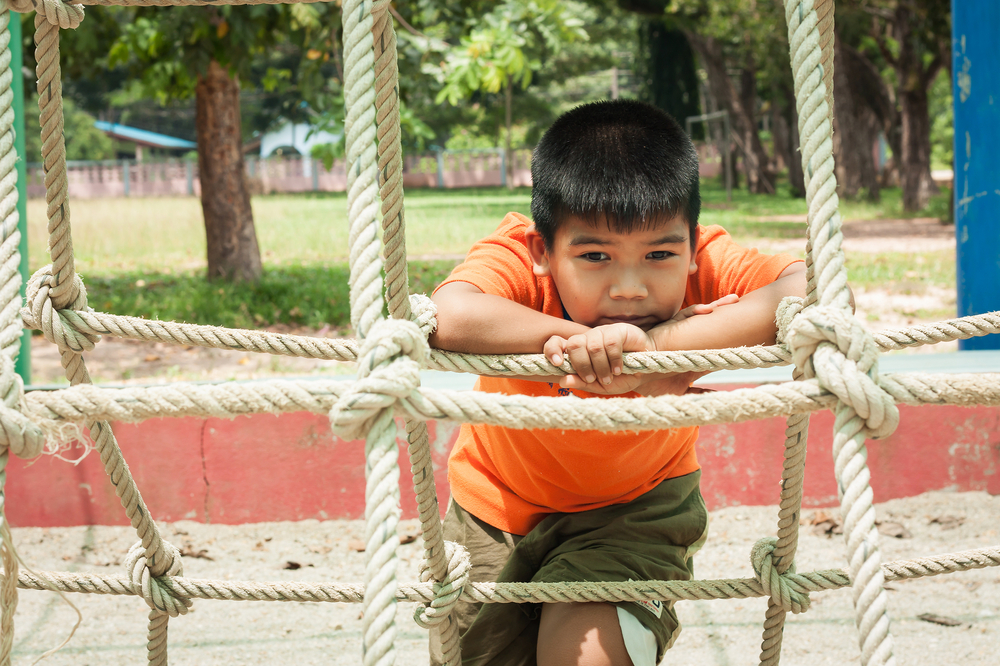Contents:
- Medical Video: 7 Types of Child Behavior That Are Dangerous to Ignore
- Autism spectrum disorders
- Attention-deficit hyperactivity disorder (ADHD)
- Anxiety disorders
- Bipolar disorder
- Central auditory processing disorder (CAPD)
- Cerebral palsy
- Conduct disorder
Medical Video: 7 Types of Child Behavior That Are Dangerous to Ignore
The growth and development of each child is different. However, some problems or changes that are not fair can cause disruption in children even to the long term. It is important for parents to be aware of and see a doctor for a variety of disorders that occur in the most common child development following.
Autism spectrum disorders
Autism spectrum disorder (GSA) is a brain disorder that has an impact on children's communication and social interactions.
Symptoms of autism spectrum disorder usually appear early in childhood. Children with GSA look like living in their own world. They are unable to develop emotional relationships with other people around them.
- Communication and language. Children with autism have a weak ability to express themselves in conversation. Their speech can be repetitive or have weak verbal communication skills. They are not able to arrange phrases and sentences or their pronunciation may be unusual. And they can continue to talk and refuse to listen while chatting with other people.
- Social interactions. Children with autism spectrum disorders have weak nonverbal communication skills Nonverbal communication including gestures, body language, facial expressions, and eye contact. Therefore, they have difficulty communicating their thoughts and feelings with others. They will also have difficulty in making friends, usually because they are unable to understand the feelings and needs of others.
- Behavior. Children with autism tend to do repetitive movements such as circling, swinging their bodies, or banging their heads. They keep moving like they can't stay still. Other behavioral disorders include being unable to deal with change and only wanting to eat certain types of food. People with autism too
- Five senses. The five senses of people with autism are usually sensitive. They may not be able to see glare, sounds that are too noisy, touch that is rough, smells pungent, or taste food that is too sharp.
The offspring of autism in the family, brain problems, sex of the child, or the age of the parent when the child is born can trigger the emergence of autism. Unfortunately, autism is a lifelong disorder. However, if detected as soon as possible you can help children adjust to be able to live more independently and quality.
Attention-deficit hyperactivity disorder (ADHD)
Attention-deficit hyperactivity disorder (ADHD) is one of the disorders in children who are chronic and occur most often. Having ADHD means the brain is not working properly. This disorder usually appears during childhood and persists into adulthood.
Symptoms of ADHD in children usually begin to occur before the age of 12 years. In some children, symptoms can appear at the age of three years. Symptoms of this disorder in children can range from mild to severe and can be different between men and women. Children with ADHD may show the following signs.
- Too much talking.
- It's difficult to organize activities.
- It's hard to stay focused
- Forgot to do certain things.
- Can't wait for his turn.
- Often daydream.
- Frequent loss of goods.
- Running at the wrong time.
- Prefer to be alone.
- It's hard to tell or follow directions from other people.
- It's hard to play calmly.
Brain injury, heredity, mild birth weight, alcohol use and smoking habits during pregnancy, premature birth, and exposure to pollution or harmful substances during pregnancy can trigger ADHD in children. Although it cannot cure ADHD, treatment can relieve symptoms.
Anxiety disorders
Anxiety disorders cause children to have excessive fear of unusual things. Children also may always feel anxious and depressed in normal situations.
Children with anxiety disorders can experience such a terrifying fear, which suddenly appears without warning. Examples of disorders in children are obsessive-compulsive disorders where people continue to experience thoughts and behaviors that seem obsessed and they cannot stop.
Bipolar disorder
Bipolar disorder, or mania-depression, is a brain disorder that causes changes mood and unusual shifts in energy levels and activity. There are four types of bipolar disorder, including bipolar I disorder, bipolar II disorder, cycloptic disorders (cyclotymia), and other bipolar disorders that are related specifically or not.
People with bipolar disorder experience episodes mood: changes in levels of activity, energy, and sleep patterns and unusual behavior. Children who experience episodes of mania can feel very "floating," have a lot of energy, and they can be more active than usual. Children who experience depression episodes can feel very "down," not or only have little energy, and they can become inactive. Children who have a combination of these two characteristics experience both symptoms, both episodes of mania and episodes of depression.
Brain structure, genetic disorders, and family health history can increase the risk of interference with this one child. Bipolar disorder cannot be cured. However, certain medications can help relieve symptoms and help children control changes moodbetter.
Central auditory processing disorder (CAPD)
Central auditory processing disorder (CAPD), also called auditory process disorder (CAPD), is a hearing problem that arises when the brain is not functioning properly. CAPD can affect people of all ages, but usually starts in childhood.
Children with CAPD show clear problems from an early age. They can have difficulty responding to sounds, enjoying music, understanding conversations, remembering instructions given, concentrating, and reading and spelling.
CAPD can occur after prolonged hearing problems, or damage to the brain such as head injury, brain tumor, or stroke. CAPD can also be lowered in the family.
Although there is no cure for CAPD, children can feel better over time as they learn to cope with their condition.
Cerebral palsy
Cerebral palsy is a condition where children have difficulty moving and maintaining balance and posture.
Symptoms cerebral palsy usually appears during childhood or toddlers. Children can experience lack of muscle coordination, muscle stiffness, slow movement, difficulty walking, delayed development of speech and speech difficulties, convulsions, and difficulty eating. They can also experience difficulty swallowing and grasping objects such as spoons or crayons. In some cases they can have oral diseases, mental health conditions, and have difficulty hearing or seeing.
Disorders in children who are serious this can be caused by abnormal brain development or damage to the brain while still in its developmental period.
Children sufferers cerebral palsy need long-term care. Medications and therapies are used to help improve their functional abilities, relieve pain, and prevent complications.
Conduct disorder
Conduct disorder are behavioral and emotional disorders that occur in children and adolescents. It is normal for children or adolescents to have abnormal behavior. However, this disorder can be considered as a child conduct disorder if it lasts for a long time and interferes with the daily lives of children and their families.
Symptoms conduct disorder may vary, including:
- aggressive behavior towards animals or other people such as fighting, bullying, use weapons, or force other people to engage in sexual activity
- use alcohol or drugs
- steal
- have low self-esteem
- easy to get angry
- break the rules
According to experts,this behavior and emotional disorder has a relationship with low socio-economic status, poor family life, childhood violence, congenital defects, anxiety disorders, and disorders mood from close family members.
Treatment for conduct disorder can succeed if it starts early. Both children and their families must be involved. This treatment usually consists of drugs and psychological therapy. Medicines aim to treat several symptoms, as well as other mental illnesses such as ADHD. Psychological therapy or counseling is intended to help children express and control emotional turmoil such as anger. Parents can also learn how to help children overcome their behavior problems.
Hello Health Group does not provide medical advice, diagnosis or treatment.












